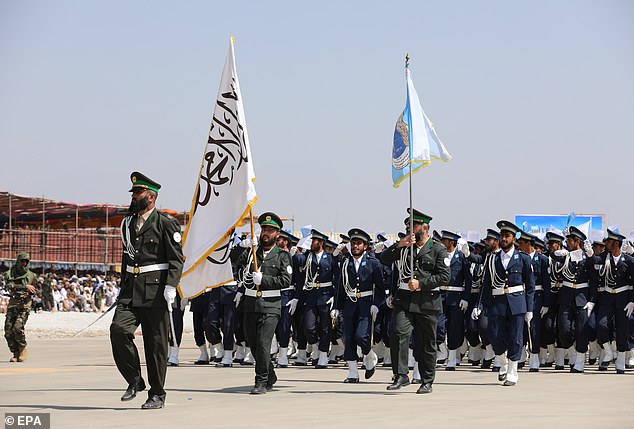Lt. Gen. Sami Sadat, one of Afghanistan’s top special forces commanders, was in the midst of an offensive against the Taliban when he heard that President Joe Biden had ordered U.S. troops to leave the country.
In an interview last year, he described his disbelief as congressional investigators looked into the disastrous withdrawal.
“I felt like a dagger in my heart, that day he looked like a tyrant, he sounded like a tyrant and he acted like a tyrant,” he said in explosive testimony published for the first time in the Republican-led Afghanistan withdrawal report.
The long-awaited House GOP report, released Sunday, revealed a catalogue of errors that led to Biden’s decision, followed by complacency and mismanagement as U.S. forces and diplomats left amid chaotic scenes.
Sadat, 39, was commander of Afghanistan’s National Special Operations Corps and deputy chief of staff of the Afghan National Army at the time of the Taliban takeover.
Taliban security personnel take part in a military parade to celebrate the third anniversary of the Taliban’s takeover of power, in Bagram, Afghanistan, August 14, 2024.
His account reflects how Afghan soldiers felt abandoned after fighting with the United States for two decades.
Biden’s order paralyzed Sadat and his forces, he told Congress, all before the U.S. government eventually handed over Bagram Air Base and implemented a frantic Noncombatant Evacuation Order (NEO) to get thousands out.
The scene was reminiscent of the fall of Saigon half a century earlier, when U.S. military forces and diplomatic personnel were caught by surprise and had to flee the U.S. embassy in a panic-stricken airlift.
Videos from Hamid Karzai International Airport (HKIA), the main evacuation point during the pullout, show equally desperate images of Afghans running alongside US military planes in dashed hopes of getting a ride.
The House Foreign Affairs Committee, the body behind the investigation, has held countless hearings into the operation that left American citizens and close allies stranded in a Taliban-controlled country.
“When President Biden was making the announcement to draw down U.S. troops to zero, I was in southwest Afghanistan leading an operation and I watched it with interest,” Sadat told investigators of the president’s order that prompted the reduction.
“The bad moment was when the announcement came,” he continued.
He describes not only his utter bewilderment at the order, but also how its implementation put Afghan and US forces, who are usually allies, at odds.
‘The truth of the matter is that after President Biden announced the withdrawal, the US forces and the Afghan forces were completely disorganized with each other.’
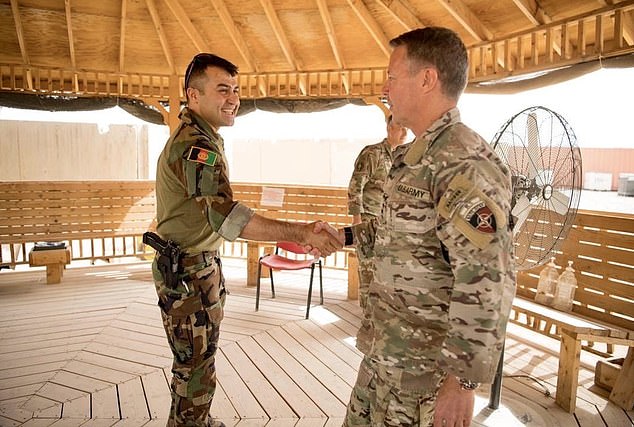
Afghan General Sami Sadat (left) greets US General Scott Miller, head of the US-led coalition in Afghanistan, in southern Helmand province in April 2021. “Over the last year, the Afghan forces have held up pretty well,” Sadat said. US and Afghan forces were taken over by the Taliban just months after this photo
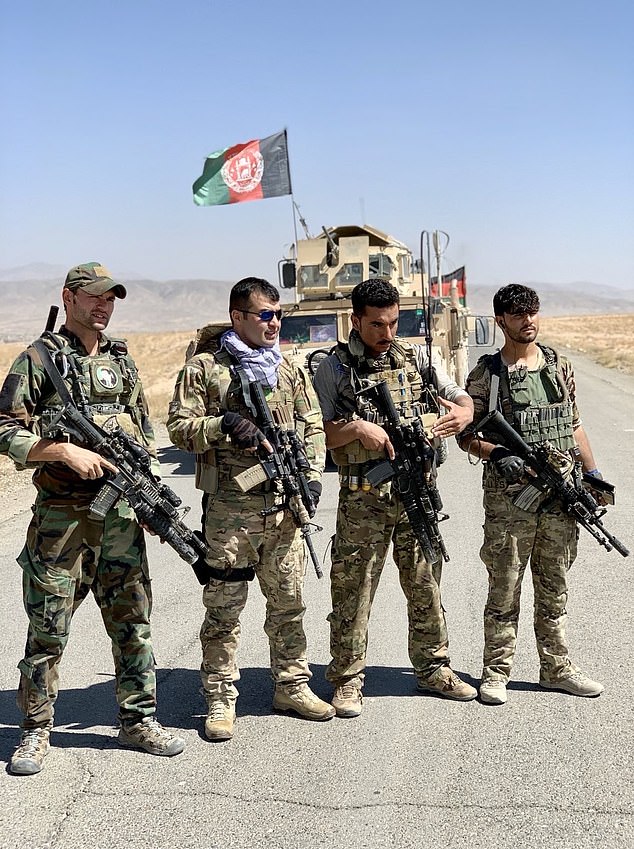
Sadat alongside coalition forces. He trained in the UK while rising through the Afghan military ranks.
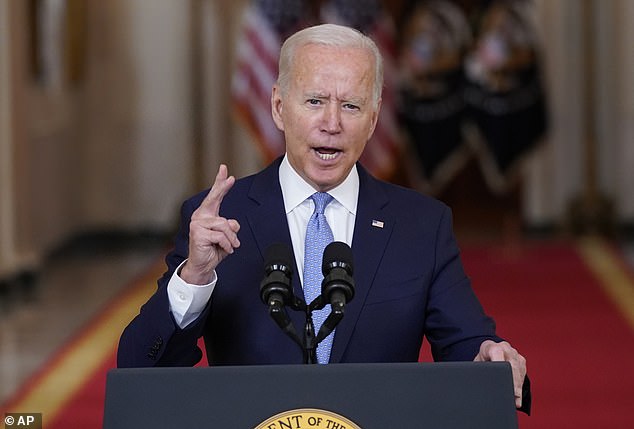
President Joe Biden speaks about ending the war in Afghanistan on August 31, 2021
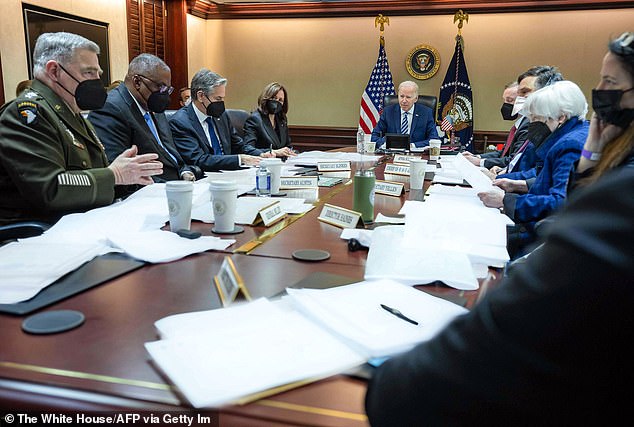
US President Joe Biden (C) meets with the National Security Council on the crisis between Ukraine and Russia, in the Situation Room of the White House in Washington, DC, February 24, 2022.
“It was unbearable to separate two brothers in war… two soldiers who worked for twenty years.”
US military forces have been present in Afghanistan since shortly after the fall of the World Trade Center towers.
The U.S. and Afghan militaries have forged a close operational relationship over the decades since then.
“President Biden not only betrayed the US-Afghan strategic agreement, but also betrayed the wishes of his own troops, causing a strategic defeat for the Afghans and the Americans from the White House itself, which occupied the highest rank of the US military,” Sadat told HFAC researchers.
But it wasn’t just Biden he blamed.
“What followed was a rapid withdrawal of U.S. forces from the country as the Taliban rapidly deployed against Afghan troops; politically, there was immense pressure from Secretary Blinken and his envoy on our President to step down.”
The country’s president, Ashraf Ghani, fled the country on August 15, 2021.
It was the same day that Taliban forces marched into the capital, Kabul, and seized power.
Sadat’s testimony accompanies a new committee report highlighting the extent of the Biden-Harris administration’s failures in Afghanistan.
Some of the report’s key findings show that former US ambassador to Afghanistan Ross Wilson was on vacation just weeks before the military withdrawal and while the Taliban were rampant, taking over towns across the country.
The civilian evacuation was not formally ordered until August 16, a day after the Taliban swept through Kabul, where American citizens, diplomatic personnel and military personnel were stationed near Hong Kong’s airport.
In the mad rush to leave the country, Taliban forces recovered classified documents and objects, including those left at the US embassy.
Some embassy employees attempted to set fire to sensitive materials by burning them in microwaves.
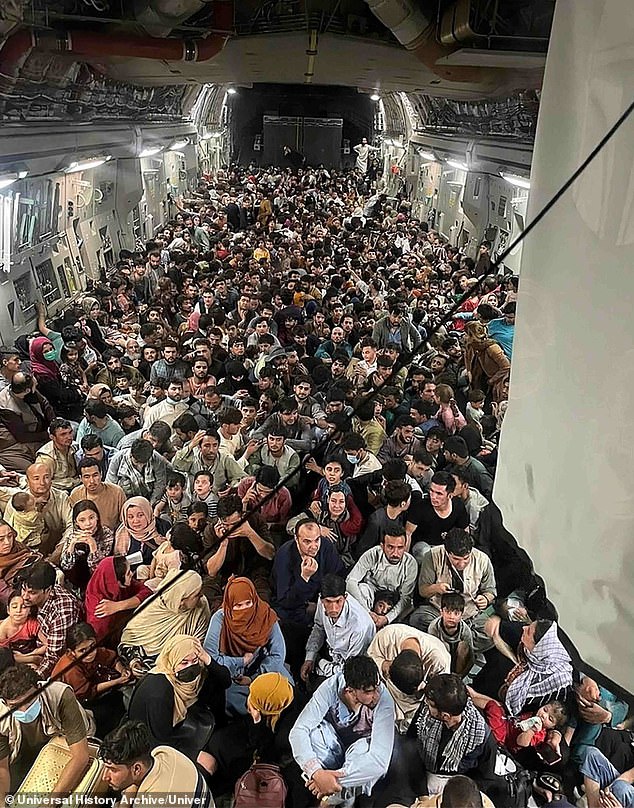
The fall of Kabul in 2021 was the capture of Afghanistan’s capital, Kabul, by the Taliban on August 15, 2021. A U.S. Air Force Boeing C-17 Globemaster III safely transported approximately 640 Afghan nationals from Hamid Karzai International Airport on August 15, 2021.
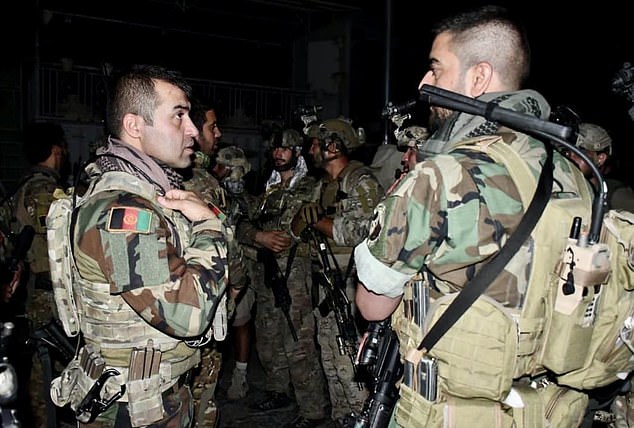
Sadat (left) called the withdrawal detrimental to the coalition of US and Afghan forces.
There were also reports that Blinken and Defense Secretary Lloyd Austin wanted Ghani to step down as the Taliban spread across major cities and provinces.
“Personally, I lost my American friends and our advantage on the battlefield when the United States withdrew its air force and the contractors who supported our air and ground forces,” Sadat testified.
When Biden took office in January 2021, he had 2,500 troops in the country after former President Donald Trump began reducing the U.S. military presence there.
However, there were thousands of military contractors in the country, reports indicate, and some estimate that they far outnumbered US troops in Afghanistan at the time.
“The Taliban would never have been able to defeat Afghan troops if it had not been for President Biden’s careless and ruthless decision to order an immediate, unconditional and uncoordinated withdrawal,” the general said.
And on August 26, 2021, disaster struck.
An Islamic State suicide bomber attacked a crowd of Afghans trying to enter Hong Kong airport to evacuate the country now controlled by the Taliban.
More than 170 Afghans and 13 US soldiers were killed in the attack.
The last US forces left the country days later on August 30, ending a 20-year American presence.
After the last troops left the country, more than 300 American citizens had to be rescued after the fact as they were abandoned, according to the committee report.
Sadat again stressed to the committee: “Biden’s action made the world less secure, less harmonized and more vulnerable in every sense.”


